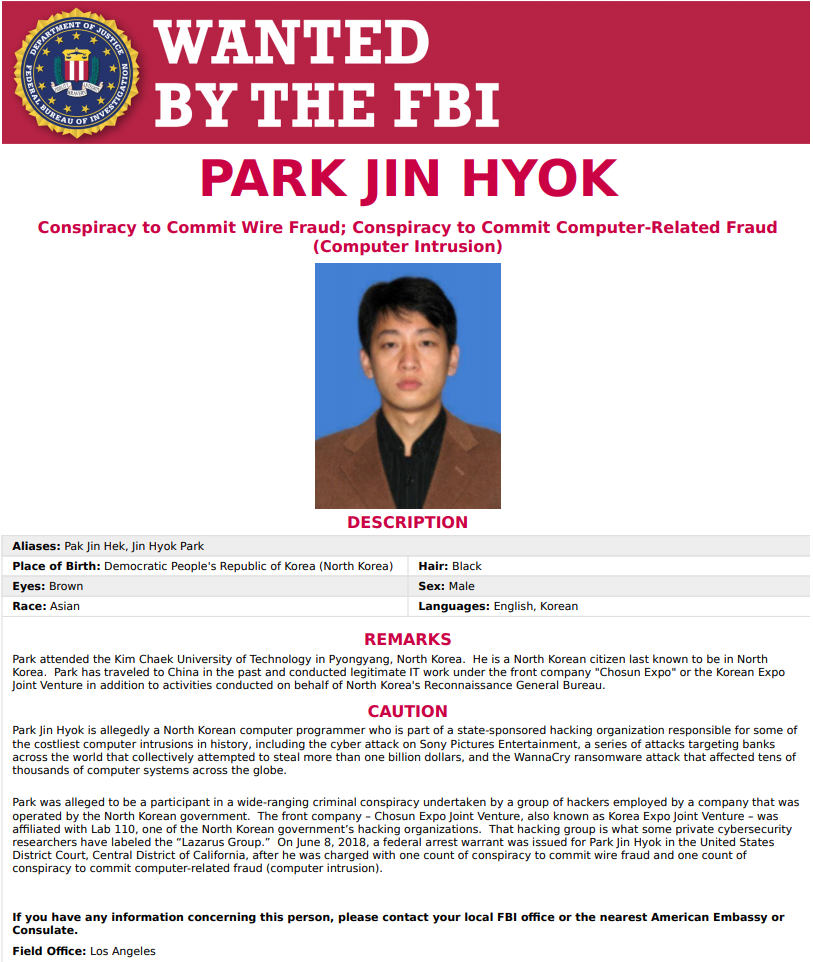In the new era where keyboards replace missiles, the keyboards of young hackers will become the sword of Damocles for cryptocurrency.
On February 21, the cryptocurrency exchange Bybit suffered a $1.5 billion hacking attack, once again pushing the actions of the North Korean hacking group Lazarus Group to the forefront.
In recent years, this organization has succeeded repeatedly, from the theft of the KuCoin Exchange to the theft of the Ronin Cross-Chain Bridge, and even the hacking of the personal wallet of the founder of Defiance Capital. The mastermind behind the scenes is this mysterious hacking organization.
You may be curious, how did North Korea, as one of the most closed countries in the world, cultivate such amazing power on the digital battlefield?
In the traditional military field, it is difficult for North Korea to compete with the US-South Korea alliance, but cyber warfare provides it with strategic leverage.
So in the world since the 1980s, the North Korean government has spent a lot of effort on hacker training and internally formulated the code name Secret War.
Jang Se-yul, a North Korean who defected to South Korea in 2007, previously studied at Mirim University, North Korea’s top engineering school (now renamed University of Automation Korea Automation). During college, Jang took courses offered by Bureau 121 with other hackers.
After graduation, Jang joined the North Korean government’s General Reconnaissance Bureau, and the 121 Bureau is its elite spy agency. It was at that time that he began to come into contact with the top hackers in the 121st Bureau.
In a later interview with Business Insider, Jang Se-yul said the threat of cyber warfare was more practical and dangerous than North Korea’s nuclear threat. He said: This is a silent war. The war started before a single shot was fired.& rdquo;
The question is, how does a country with such poor resources make great efforts to engage in cyber warfare?
Jang Se-yul’s answer is:Because cultivating a hacker is very cheap.
Generally speaking, North Korea is divided into three major classes: the basic masses (core class), the complex masses (ordinary middle class), and the remnants of hostile classes (hostile classes such as landlords and descendants of rich peasants), and is further divided into 56 classes below. These class classifications are recorded on residents ‘ledgers and used during the cadre recruitment process.
An Zanri, director of the World Center for Korean Studies, said that in the past, North Korean hackers also relied on their backgrounds, because if their loyalty to the party declined, it would pose a threat to the system.
Until the international community imposed all-round sanctions on North Korea and blocked North Korea’s ways to earn foreign exchange, it could only illegally earn foreign exchange through cyber attacks.
This has also opened up a special channel for cyber warfare talents and promoted talents regardless of one pattern.
Jang’s alma mater, Automation University, is the core base for North Korean hacker training. He said that each class only enrolls 100 students, but there are as many as 5000 applicants.” rdquo;
It can be said that this is the PLUS version of the college entrance examination. Once you apply successfully and become a hacker, you can become the top 1% of people in North Korea. However, this process is extremely difficult.
Before these young hackers graduate, they have to undergo nearly 9 years of rigorous training, and the youngest has been trained since the age of 17.

While at school, they took six classes a day, each class for 90 minutes, and learned various programming languages and operating systems. Spend a lot of time every day analyzing Microsoft’s Windows operating system and other programs to study how to break the computer information systems of hostile countries such as the United States and South Korea.
In addition, their core task is to develop their own hacking programs and computer viruses without having to rely on existing hacking programs outside.
In Jang’s view, the technical level of North Korean hackers is no less than that of Google or the CIA’s top programmers, and may even be better.
From the first day of education, these black teenagers have been given missions and goals. They will be divided into different groups and focus on attacking different countries and regions, such as the United States, North Korea and Japan. Once hackers are assigned to a specific country group, they will spend nearly two years undercover entering the country to learn the local language and culture so that they will not reveal flaws outside of technology.
Jang said one of his friends worked for an overseas department of Bureau 121, but he was ostensibly an employee of a North Korean trading company. No one knows his true identity, and his company is running business normally.
Due to the special nature of cyber warfare, these young hackers can use the Internet freely, get the latest developments abroad as soon as possible, and also know that their country is very closed and conservative, but this will not shake their patriotism and loyalty to their leaders.
“Even if others forcibly persuade them or even provide them with jobs in the South Korean presidential palace, they will not turn their backs on their country. rdquo; Jang said so.
Of course, once you become a hacker, it also means money and privileges.
Young hackers can earn up to US$2000 a month, twice that of ambassadors abroad. In addition, they can also obtain more than 185 square meters of luxury apartments in central Pyongyang and move their families to the capital, which are undoubtedly extremely attractive conditions.
In the new era where keyboards replace missiles, the keyboards of young hackers will become the sword of Damocles for cryptocurrency.
Welcome to join the official social community of Shenchao TechFlow
Telegram subscription group: www.gushiio.com/TechFlowDaily
Official Twitter account: www.gushiio.com/TechFlowPost
Twitter英文账号:https://www.gushiio.com/DeFlow_Intern



